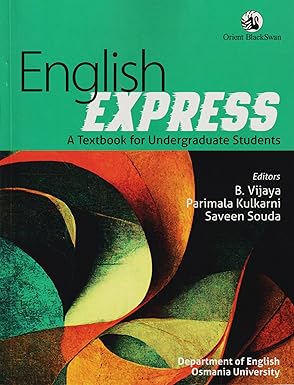This course introduces undergraduate students to the foundations and current trends in Information Technology. Topics span across IT components, the internet, operating systems, programming languages, software types, databases, networking models, and cutting-edge fields like cloud computing, artificial intelligence, and wireless technologies. It serves as a non-specialized introduction for students from various academic backgrounds.

- Teacher: Dr DAMARAJU PADMALEELA
This paper primarily focuses on three key areas of statistics: Sampling Theory, Time Series Analysis, and Statistical Quality Control. Sampling Theory involves methods for estimating unknown population parameters based on statistical measures derived from sample data. Time Series Analysis refers to the techniques used for analyzing data points collected or recorded at successive points in time, with the goal of identifying patterns, trends, or seasonal effects. Statistical Quality Control applies statistical methods to monitor and maintain the quality of products and services, ensuring that processes remain within acceptable limits and meet specified standards.
- Teacher: RAJYA LAKSHMI M
The General English course English Express comes handy to cater to students’ needs who would embark on a new journey after their undergraduate studies. During the course of their last semesters, students get exposure to experiential learning, especially with live projects and campus interviews, and the English course prepares them to face these challenges. All the texts in the coursework are carefully picked to enable them to gain pragmatic experiences of life apart from exposing them to the apparent reflections of varied human societies and cultures. The texts also enable them to think critically and comprehend the implicit values they convey.

- Teacher: Dr MANOJ KANTH SIRRA
Course Summary
This course introduces students to the fundamentals and advanced features of Java programming. It covers object-oriented programming principles, including classes, inheritance, and polymorphism. Key topics include exception handling, multithreading, file I/O, and graphical user interface development using AWT and Swing. Through theoretical instruction and practical implementation, students will gain hands-on experience in developing robust and efficient Java applications, applets, and GUI-based programs.

- Teacher: MAHANTA CHAUHAN
- Teacher: RAGA SUDHA JONNADA
This course introduces students to the fundamental concepts of linear algebra, which form the backbone of many mathematical and applied disciplines. Key topics include vector spaces, subspaces, linear transformations, eigenvalues, eigenvectors, diagonalization, and orthogonality. Students will learn how to solve systems of linear equations, understand matrix operations, and apply concepts like the Gram-Schmidt process and least-squares approximation. The course emphasizes both theoretical understanding and practical applications, preparing students for further studies in mathematics, data science, physics, and engineering.

- Teacher: ALIGETI SANDHYA RANI